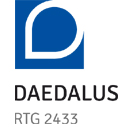
Basics and Contact
Research interests:
- Numerical methods in mathematical physics
- Lattice gauge theory and non-perturbative renormalization
- Scientific Computing and High-performance computin
Projects:
- Continuum limit of the SU3 Yang Mills theory (Link the blue underlined text to: http://zulassung.hlrn.de/kurzbeschreibungen/bep00056.pdf ), HLRN project (2016 – 2017)
Publications:
- Sroka, M., Engels, T., Krah, P., Mutzel, S., Schneider, K. and Reiss, J. (2019). An Open and Parallel Multiresolution Framework Using Block-Based Adaptive Grids. Active Flow and Combustion Control 2018. Springer International Publishing, 305–319.
- Husung, N., Koren, M., Krah, P. and Sommer, R. (2018). SU(3) Yang Mills theory at small distances and fine lattices. Proceedings, 35th International Symposium on Lattice Field Theory (Lattice 2017): Granada, Spain, June 18-24, 2017, 14024.
Teching experience:
Student Assistant, Technical University of Berlin, Institute of Mathematics.
Teaching groups of up to 35 students in various mathematical courses:
- Numerics for Engineers
- Analysis I,II,III for Engineers
- Integral Transformations and Partial Differential Equations
- Mathematics for Physicists I
- Linear Algebra
- Introduction to Information Technology – Programing Language C
1. What shaped me as a researcher:
The complexity of nature has always fascinated me, and has been my motivation behind studying physics and engineering science. An interest in the phenomenology of nature and its technical use, drove me to start studying engineering science. With a deeper mathematical and computational understanding gathered during my bachelor studies, I soon realized that I am less interested in classical engineering aspects. Thus, in my master studies I decided to take courses in mathematical and computational physics, allowing me to deepen my understanding of the underlying physics, when implementing an algorithm or computing any quantity of the mathematical model. This is why the objective of my studies are driven by a curiosity in mathematical models in physics and their applications to computational science.
2. What motivated me to do research in this field or specific project:
Most recently, I have finished my master thesis titled “Numerical Investigation of Fluid Dynamic Aspects of an Electrodynamic Ion Funnel” in the group of Julius Reiss, who is co-supervisor of this project. During the writing-process of this thesis, I was involved in the development of the multi-resolution code used for solving evolutionary partial differential equations. The numerical investigations in my master thesis involved the treatment of high Mach flows around complex geometries, featuring shocks. I enjoyed the work and I would like to deepen and extend my knowledge in this field. While closely working together with Julius Reiss, he introduced me to the concepts of the proper orthogonal decomposition (POD) and the shifted POD (sPOD). Both concepts are very novel numerical techniques and in my opinion worth studying intensively within a PhD project.
3. What I think is important in my field or research in general:
Above all, studies in maths or physics require intrinsic motivation. It can be hard and frustrating, but you have to be patient and hope for the best.
4. What helps me in my research:
As a young researcher it is very important to have a well organized research environment. Therefore I am really grateful to be part of the DAEDALUS project. It offers excellent infrastructure for research. No matter what scientific or personal problems I might have, I always have someone to speak to. Furthermore the scientific exchange among the graduate students and experienced supervisors helps me a lot.
5. What shapes you besides research? Do you have hobbies or volunteer work, which you want to share?
Besides research I very much enjoy cultural or physical activities. I regularly do sports, like sailing, kite boarding, swimming, karate and climbing. I am playing different kinds of percussive instruments and ukulele.
